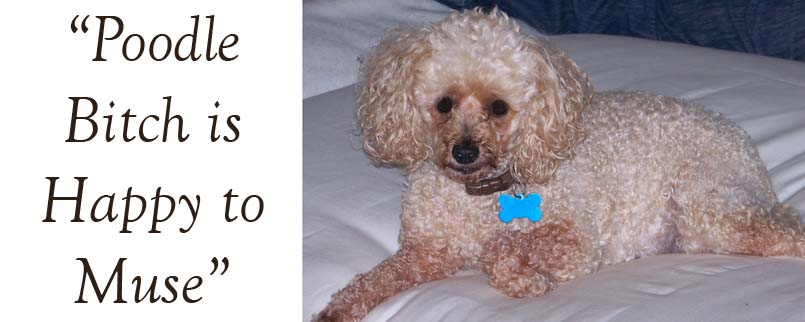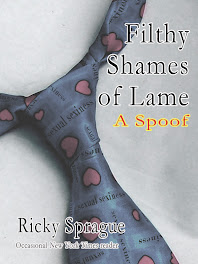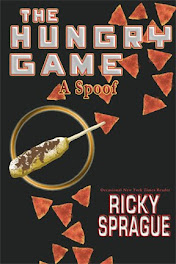Which brings her to the latest "viral video" sensation, "Denver the guilty dog."
"You know the routine," the human says, 1:50 into this manipulative monstrosity. Indeed, Denver does "know the routine." Make the expression. That expression that gets the reaction.
Poodle Bitch never feels guilty partaking of sustenance that the humans in her midst have left in an accessible place. If the human in this video, the one who shot the footage and then set it to the weepy background music (the one redeeming factor in the whole sordid mess is that the musicians behind the song are getting some publicity, even if Poodle Bitch herself doesn't particularly care for the song), truly hadn't wanted Denver to eat the cat treats, he would not have left them in such a place as they could be found. Poodle Bitch does not believe that Denver feels guilt, either.
The human should feel ridiculous, perhaps even stupid. But Denver? Denver ate a bag of treats. Denver should feel satisfied, and most likely does. And, perhaps, smug, at the casual way in which he both manipulates his human companion, and plays along with his fiction.
Poodle Bitch notes that just a couple of years ago, a study was done that suggested that it's humans interpretations of animals' expressions that lead them to believe their companions feel "guilt."
During the videotaped study, owners were asked to leave the room after ordering their dogs not to eat a tasty treat. While the owner was away, Horowitz gave some of the dogs this forbidden treat before asking the owners back into the room. In some trials, the owners were told that their dog had eaten the forbidden treat; in others, they were told their dog had behaved properly and left the treat alone. What the owners were told, however, often did not correlate with reality.
Whether the dogs' demeanor included elements of the "guilty look" had little to do with whether the dogs had actually eaten the forbidden treat or not.
Dogs looked most "guilty" if they were admonished by their owners for eating the treat. In fact, dogs that had been obedient and had not eaten the treat, but were scolded by their (misinformed) owners, looked more "guilty" than those that had, in fact, eaten the treat.
In the "Denver the guilty dog" video, we clearly see the human feeding Denver not treats, but cues. From these cues, Denver knows exactly what the human expects. "Why does he want me to act that way?" he probably wonders. "Who cares? I am an agreeable canine companion, and I want him to be happy. I will do it."
"You know the routine," the human says, tellingly.
Nearly 5 million views on YouTube, and a facebook page with more than 23,500 fans. Denver and his human have a routine, and now the human has made Denver complicit in the manipulation of humans all over the country.


